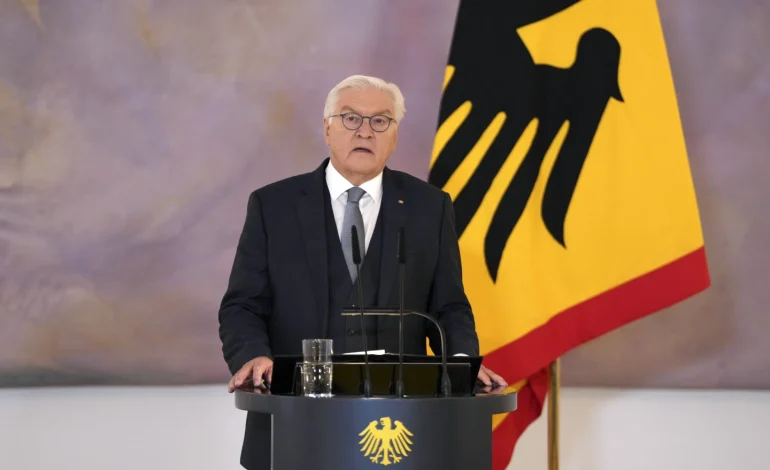German President Frank-Walter Steinmeier has dissolved parliament and called for new elections to be held on February 23, following the collapse of Chancellor Olaf Scholz’s governing coalition, The Associated Press reports.
The decision comes after Scholz lost a confidence vote on December 16, and leads a minority government. His three-party coalition had imploded on November 6 after he dismissed his finance minister amidst disputes over economic policy.
Steinmeier said that his decision was made after consultations with party leaders, revealing a lack of consensus on a stable majority government within the current parliament.
Germany’s post-World War II constitution prohibits the Bundestag from dissolving itself, granting President Steinmeier the authority to decide on dissolving parliament and calling elections. The president had 21 days to make his decision, and once the dissolution takes place, the election must be held within 60 days. Party leaders had agreed to the February 23 date, seven months earlier than originally scheduled.
The campaign is already underway, with polls indicating that Scholz’s party is trailing behind the conservative opposition Union bloc led by Friedrich Merz. Vice Chancellor Robert Habeck of the environmentalist Greens, also a partner in Scholz’s former coalition, is also vying for the chancellorship. If current polling trends hold, a government led by Merz in coalition with at least one other party is likely.
Key issues dominating the election campaign include immigration, measures to revitalize Germany’s sluggish economy.
The populist, anti-immigration Alternative for Germany (AfD), is also polling strongly. Although the party has nominated Alice Weidel as its candidate for chancellor, it is widely considered to have no chance of holding the position due to the unwillingness of other parties to cooperate with them.
Germany’s electoral system traditionally results in coalition governments, and current polls show no party close to achieving an absolute majority. The election is expected to be followed by weeks of negotiations to form a new government.
This is only the fourth time that the Bundestag has been dissolved ahead of schedule under Germany’s post-World War II constitution. Previous early dissolutions occurred under Chancellor Willy Brandt in 1972, Helmut Kohl in 1982, and Gerhard Schroeder in 2005. Schroeder’s move was a strategic attempt to engineer an early election, which ultimately led to a narrow victory by center-right challenger Angela Merkel.









